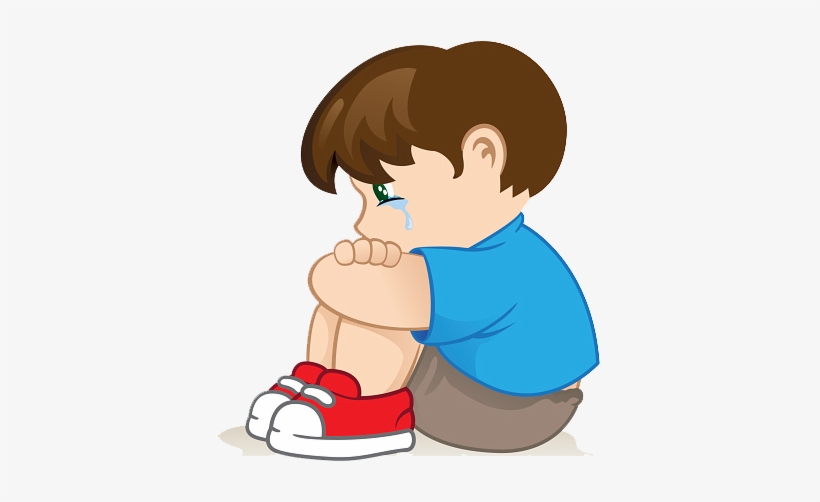THE BALL POEM for Class 10 ENGLISH
THEME

Through this poem, the poet John Berryman, has described the reality of life which everyone has to face one day. Children lose things like their toys and balls quite often. The ball, in this poem, symbolises the poet’s childhood. Once we become adults we lose our childhood. Initially, the poet was clinging to his childhood but later he accepted the changes in his life. Although he is still suffering, yet he is learning to move on from his fleeting childhood. The true theme of the poem is that we should cherish every moment of life. Life is really very short. The poet realises that it is very difficult to deal with the loss but it must be done. We should move on as there is no use in wasting precious time and life.
THEME

Through this poem, the poet John Berryman, has described the reality of life which everyone has to face one day. Children lose things like their toys and balls quite often.The ball, in this poem, symbolises the poet’s childhood. Once we become adults we lose our childhood. Initially, the poet was clinging onto his childhood but later he accepted the changes in his life. Although he is still suffering, yet he is learning to move on from his fleeting childhood. The true theme of the poem is that we should cherish every moment of life. Life is really very short. The poet realises that it is very difficult to deal with the loss but it must be done. We should move on as there is no use in wasting precious time and life.
EXPLANATION
Iss poem se poet humko life ki reality ke bare me batana chahte hai. Bache khilaune and balls jaisi cheezein aksar kho dete hai. Iss baat ko choti baat hi samjha jata hai. Iss poem me ball bachpan ko symbolize karti hai. Jaise hi hum bade ho jate hai hum apna bachpan kho dete hai. Poet pehle toh apne bachpan ke bare me bohot sochte the lekin ab unhone badlaav ko accept kar liya hai. Poet thoda pareshan toh hai apne childhood ko kho dene se lekin fir bhi vo aage badh rahe hai. Ye poem hume batati hai ki humko apni life me sab kuch sanjoh kar rakhna chahiye. Life bohot choti hoti hai. Poet kehte hai ki loss se deal karna mushkil hai lekin karna hi padta hai. Aage badhna chahiye kyuki life aur time precious hote hai and isliye unko waste nhi karna chahiye.
EXPLANATION
इस कविता से कवि हमें ज़िंदगी की सच्चाई के बारे में बताना चाहते है। बच्चे खिलौने और गेंद जैसी चीज़े अक्सर खो देते है। इस बात को छोटी बात ही समझा जाता है। इस कविता में गेंद बचपन का प्रतीक है। जैसे ही हम बड़े हो जाते है, हम अपना बचपन खो देते है। कवि पहले तो अपने बचपन के बारे में बहुत सोचते थे, लेकिन अब उन्होंने बदलाव को स्वीकार कर लिया है। कवि अपने बचपन को खो देने से थोड़ा परेशान तो है लेकिन फिर भी वह आगे बढ़ रहे है। यह कविता बताती है कि हमको अपनी ज़िंदगी में सब कुछ संजोह कर रखना चाहिए क्योंकि जिंदगी बहुत छोटी होती है। कवि कहते है कि नुक़सान से समझोता करना मुश्किल है लेकिन करना ही पड़ता है। हमें आगे बढ़ना चाहिए क्योंकि ज़िंदगी और समय अनमोल होते है इसलिए हमें उन्हें बर्बाद नहीं करना चाहिए।
ABOUT THE POET

John Ally Mc. Alphin was an American poet and scholar. He was born on 25 October 1914 in McAlester, Okhla in the Unites States of America. He was married to Kate Donahue in 1961. He was educated at Clare College, Columbia University. "The Dream Songs", "77 Dream Songs" and "Berryman's Shakespeare" are some of his famous works. He was awarded the Pulitzer Prize for poetry in 1969. He died on 7 January 1972.
ABOUT THE POET

John Ally Mc. Alphin was an American poet and scholar. He was born on 25 October 1914 in McAlester, Okhla in the Unites States of America. He was married to Kate Donahue in 1961. He was educated at Clare College, Columbia University. "The Dream Songs", "77 Dream Songs" and "Berryman's Shakespeare" are some of his famous works. He was awarded the Pulitzer Prize for poetry in 1969. He died on 7 January 1972.
EXPLANATION
John Allyn Mc. Alphin Berryman ek American poet aur scholar the. Unka janam 25 October 1914 ko, Mc Alester, Oklah, United States of America mein hua tha. Unki shadi Kate Donahue se 1961 mein hui. Unhone apni padhai Clare College, Columbia University se kari. "The Dream Songs", "77 Dream Songs" aur "Berryman’s Shakespeare" unke kuch jaane maane kaam hai. Unhe 1969 me Pulitzer Prize se nawaza gaya tha. Vo 7 January, 1972 me chal basey the.
EXPLANATION
जॉन एलिन मैक. अल्फिन बेरीमैन एक अमेरिकी कवि और स्कॉलर थे। उनका जन्म 25 अक्टूबर 1914, मैक्लेस्टर, ओकलह, यूनाइटेड स्टेट्स ऑफ़ अमेरिका में हुआ था। उनकी शादी केट डोनाह्यू से 1961 में हुई थी। उन्होंने अपनी पढ़ाई क्लेयर कॉलेज, कोलंबिया विश्वविद्यालय से की थी। “द ड्रीम सोंग्स”, “77 ड्रीम सोंग्स” और “बैरीमैन शेक्सपियर” उनके कुछ प्रसिद्ध काम है। उन्हें 1969 में कविता की श्रेणी में पुलित्जर पुरस्कार से नवाजा गया था। 7 जनवरी 1972 को उनका देहांत हो गया था।
STANZA 1

What is the boy now, who has lost his ball,
What, what is he to do? I saw it go
Merrily bouncing, down the street, and then
Merrily over — there it is in the water!
STANZA 1

What is the boy now, who has lost his ball,
What, what is he to do? I saw it go
Merrily bouncing, down the street, and then
Merrily over — there it is in the water!
IMPORTANT WORDS
Merrily: cheerful; ख़ुशी से
Bouncing: (used about a ball, etc.) to move away quickly after it has hit a hard surface; to make a ball do this, (गेंद का) कठोर सतह से टकराकर उछलना; गेंद को इस प्रकार उछालना
IMPORTANT WORDS
Merrily: cheerful; ख़ुशी से
Bouncing: (used about a ball, etc.) to move away quickly after it has hit a hard surface; to make a ball do this, (गेंद का) कठोर सतह से टकराकर उछलना; गेंद को इस प्रकार उछालना
EXPLANATION
Ye poem ek chote bache ke baare me hai. Vo apni life me pehli baar udaas hota hai jab wo apni ball ko kho deta hai. Ball yaha pe bachpan ki yaadon ko dikhati hai. Bacha dekhta hai ki uski ball uchalte huye paani me gir jaati hai. Humare liye ball gum jana ek bohot hi choti si baat hai lekin us chote bacche ke liye wo ball ek bohot keemti samaan tha jo kho gaya tha.
EXPLANATION
यह कविता एक छोटे बालक के बारे में है। वह अपनी ज़िंदगी में पहली बार दुःखी होता है जब वह अपनी गेंद को खो देता है। गेंद यहाँ बचपन की यादों को दर्शाती है। लड़का देखता है कि उसकी गेंद उछलते हुए पानी में गिर जाती है। हमारे लिए गेंद खो जाना एक मामूली बात है लेकिन उस छोटे बालक के लिए वह गेंद एक बहुत क़ीमती वस्तु थी, जो खो गई थी।
STANZA 2

No use to say ‘O there are other balls’:
An ultimate shaking grief fixes the boy
As he stands rigid, trembling, staring down
All his young days into the harbour where
His ball went. I would not intrude on him;
A dime, another ball, is worthless.
STANZA 2

No use to say ‘O there are other balls’:
An ultimate shaking grief fixes the boy
As he stands rigid, trembling, staring down
All his young days into the harbour where
His ball went. I would not intrude on him;
A dime, another ball, is worthless.
IMPORTANT WORDS
Grief: sorrow; शोक
Rigid: fixed; कठोर
Trembling: shaking; कंपना
Harbour: dock, port; बंदरगाह
Intrude: invade; बिना अधिकार के प्रवेश करना
Dime: 10 cents (U.S); डॉलर का दसवाँ भाग
Worthless: valueless, useless; बेकार
IMPORTANT WORDS
Grief: sorrow; शोक
Rigid: fixed; कठोर
Trembling: shaking; कंपना
Harbour: dock, port; बंदरगाह
Intrude: invade; बिना अधिकार के प्रवेश करना
Dime: 10 cents (U.S); डॉलर का दसवाँ भाग
Worthless: valueless, useless; बेकार
EXPLANATION
Poet kehte hai ki koi fayeda nhi hai agar vo us chote bache ko samajhaye ki usko doosri ball mil jayegi. Bacha bohot sad hai kyuki uss ball ke sath sath bachpan ki sari achi yaadein bhi paani me gir gayi. Vo chota bacha uss nuksaan ko jhel nhi payega. Poet kehte hai ki uss bache ko paise dekar nayi ball khareedne ke liye kehna fizool hai. Bacha apni pehle vali ball ko bohot pasand karta hai aur uss ball ke paani me girne ke sath uss ball ke sath judi sari memories bhi gum ho gayi hai.
EXPLANATION
कवि कहते है कि कोई फ़ायदा नहीं है अगर वह उस छोटे बालक को समझाए कि उसको नई गेंद मिल जाएगी। बालक बहुत दुःखी है क्योंकि उस गेंद के साथ-साथ बचपन की सारी अच्छी यादें भी पानी में गिर गई। वह छोटा बालक उस नुक़सान को सह नहीं पाएगा। कवि कहते हैं कि कोई फ़ायदा नहीं है उस बालक को पैसे देकर नई गेंद ख़रीदने के लिए कहने का। बालक अपनी पहली वाली गेंद को बहुत पसंद करता है और उस गेंद के पानी में गिरने के साथ उस गेंद से जुड़ी सारी यादें भी गुम हो गई है।
STANZA 3

Now
He senses first responsibility
In a world of possessions. People will take
Balls, balls will be lost always, little boy.
And no one buys a ball back. Money is external.
STANZA 3

….Now
He senses first responsibility
In a world of possessions. People will take
Balls, balls will be lost always, little boy.
And no one buys a ball back. Money is external.
IMPORTANT WORDS
Possessions: something that is owned or possessed; संपत्ति
External: superficial, extrinsic; बाहरी
IMPORTANT WORDS
Possessions: something that is owned or possessed; संपत्ति
External: superficial, extrinsic; बाहरी
EXPLANATION
Bacha uss gehre paani ki taraf dekhta hai aur udaas hota hai kyuki ab usko uski ball nahi milegi. Ab uss bache ko apni zimmedaari samajh aa rhi hai. Ball ke, gum ho jane se uss bache ko samajh aa gya hai ki iss duniya me jaha cheezo aur saaman ko zada keemti samjha jata hai, bohot si cheezein gum ho jayengi aur usko kabhi vapis nahi milengi. Ball bachpan aur masumiyat ko darshati hai. Ball (bachpan aur keemti cheezein) gum hoti rahengi aur unko vapis nhi laya jaa sakta. Poet uss bache ko uski zimmedaari (responsibility) ke bare me samjhana chahte hai. Paiso se yaadein aur pyaar jaisi zaroori cheezein nahi khreedi jaa sakti.
EXPLANATION
बालक दुःखी होता है जब वह उस गहरे पानी की तरफ़ देखता है क्योंकि अब उसको उसकी गेंद नहीं मिलेगी। अब उस बालक को अपनी ज़िम्मेदारी समझ आ रही है। गेंद के, गुम हो जाने से उस बालक को समझ आ गया है कि इस दुनिया में जहाँ चीजों और सामान को ज़्यादा क़ीमती समझा जाता है, बहुत सी चीजें गुम हो जाएँगी और उसको कभी वापस नहीं मिलेंगी। गेंद बचपन और मासूमियत को दर्शाती है। गेंद (बचपन और क़ीमती चीजें) गुम होती रहेंगी और उनको वापस नहीं लाया जा सकता। कवि उस बालक को उसकी ज़िम्मेदारी के बारे में समझाना चाहता है। पैसों से यादें और प्यार जैसी ज़रूरी चीजें नहीं ख़रीदी जा सकती है।
STANZA 4

He is learning, well behind his desperate eyes,
The epistemology of loss, how to stand up
Knowing what every man must one day know
And most know many days, how to stand up.
STANZA 4

He is learning, well behind his desperate eyes,
The epistemology of loss, how to stand up
Knowing what every man must one day know
And most know many days, how to stand up.
IMPORTANT WORDS
Desperate: wanting or needing something very much; किसी वस्तु के लिए अत्यधिक व्यग्र
Epistemology: The Greek word episteme means ‘knowledge’; ज्ञानवाद
IMPORTANT WORDS
Desperate: wanting or needing something very much; किसी वस्तु के लिए अत्यधिक व्यग्र
Epistemology: The Greek word episteme means ‘knowledge’; ज्ञानवाद
EXPLANATION
Poet kehte hai ki uss bacche ko ball ke gum ho jane se materialistic (cheezo ko zada keemti samajhna) duniya me jeena aa rha hai. Bache ko ab samajh aa jayega ki kisi cheez ke gum ho jane se kaisa mehsoos hota hai. Poet ne iss baat ko highlight kiya hai ki insaan ko iss tarah ke nuksaan ko jhelna padta hai aur fir vapis aur himmat ke sath khada hona seekhna padta hai.
EXPLANATION
कवि कहते है कि उस बालक को गेंद के गुम हो जाने से भौतिकवादी (चीजों को ज़्यादा क़ीमती समझना) दुनिया में जीना आ रहा है। बालक को अब समझ आ जाएगा कि किसी चीज़ के गुम हो जाने से कैसा महसूस होता है। कवि ने इस बात पर मुख्य रूप से ज़ोर दिया कि इंसान को इस तरह के नुक़सान को झेलना पड़ता है और फिर हिम्मत के साथ वापस खड़ा होना सीखना पड़ता है।
SUMMARY
SUMMARY
EXPLANATION
EXPLANATION
LITERARY DEVICES
Imagery: Visually descriptive or figurative language, especially in a literary work.
For example: Merrily bouncing down the street
Symbolism: The use of words to represent different ideas or qualities.
For example: The ball symbolises the boys' young and innocent days.
Repetition: Intentionally using the same word or phrase at least twice or more for effect.
For example: Balls, balls
Alliteration: The occurrence of the same letter or sound at the beginning of adjacent or closely connected words.
For example: A. What, what
B. buys a ball back
Anaphora: The repetition of a word or phrase at the beginning of successive clauses.
For example: A. What is the boy… what, what
B. merrily bouncing... merrily over
Assonance: Resemblance in the sounds of words/syllables either between their vowels (e.g. meat, bean) or between their consonants.
For example: A. Boy, now, who, lost learning
B. well behind his desperate eyes
LITERARY DEVICES
Imagery: Visually descriptive or figurative language, especially in a literary work.
For example: Merrily bouncing down the street
Symbolism: The use of words to represent different ideas or qualities.
For example: The ball symbolises the boys' young and innocent days.
Repetition: Intentionally using the same word or phrase at least twice or more for effect.
For example: Balls, balls
Alliteration: The occurrence of the same letter or sound at the beginning of adjacent or closely connected words.
For example: A. What, what
B. buys a ball back
Anaphora: The repetition of a word or phrase at the beginning of successive clauses.
For example: A. What is the boy… what, what
B. merrily bouncing... merrily over
Assonance: Resemblance in the sounds of words/syllables either between their vowels (e.g. meat, bean) or between their consonants.
For example: A. Boy, now, who, lost learning
B. well behind his desperate eyes
QUESTION ANSWERS
Question 1: Why does the poet say, “I would not intrude on him?" Why doesn’t he offer him money to buy another ball?
ANSWER: The poet says, “I would not intrude on him" because he does not want to intervene in the natural process of learning. He wants the boy to learn the meaning of loss on his own. The poet says that he can’t even tell the boy to take some money from him to buy another ball. He says so because the new ball will not bring a sense of belonging to the boy. He wants the boy to learn the lesson of responsibility.
Question 2: “Staring down. All his young days into the harbour where/His ball went'' Do you think the boy has had the ball for a long time? Is it linked to the memories of days when he played with it?
ANSWER: Yes, the boy had the ball for a long time. When it bounced into the water, all his childhood memories flashed in front of him. He realized that those moments would not come back, just like the ball. He can buy new balls and can similarly create new moments, but those that are gone will not return.
Question 3: What does “in the world of possessions" mean?
ANSWER: "In the world of possessions" means people like to possess all sorts of things in the world. Money is external because it can buy only material objects; it cannot buy everything that one loses.
Question 4: Do you think the boy has lost anything earlier? Pick out the words that suggest the answer.
ANSWER: No, it seems that the boy has not lost anything earlier. The words that suggest so are ‘He senses first responsibility in a world of possessions’.
Question 5: What does the poet say the boy is learning from the loss of the ball? Try to explain this in your own words.
ANSWER: The boy is learning ‘the sense of loss in life.’ Loss is a fact of life. When we lose something for the first time, we feel very sad. But later we learn to live with our loss. In this poem, the boy loses his ball. He is very sad. The poet can buy him another ball. But he does not want to do so. He wants the boy to learn the bitter truth of life that everyone has to suffer the loss of something dear.
QUESTION ANSWERS
Question 1: Why does the poet say, “I would not intrude on him?" Why doesn’t he offer him money to buy another ball?
ANSWER: The poet says, “I would not intrude on him" because he does not want to intervene in the natural process of learning. He wants the boy to learn the meaning of loss on his own. The poet says that he can’t even tell the boy to take some money from him to buy another ball. He says so because the new ball will not bring a sense of belonging to the boy. He wants the boy to learn the lesson of responsibility.
Question 2: “Staring down. All his young days into the harbour where/His ball went'' Do you think the boy has had the ball for a long time? Is it linked to the memories of days when he played with it?
ANSWER: Yes, the boy had the ball for a long time. When it bounced into the water, all his childhood memories flashed in front of him. He realized that those moments would not come back, just like the ball. He can buy new balls and can similarly create new moments, but those that are gone will not return.
Question 3: What does “in the world of possessions" mean?
ANSWER: "In the world of possessions" means people like to possess all sorts of things in the world. Money is external because it can buy only material objects; it cannot buy everything that one loses.
Question 4: Do you think the boy has lost anything earlier? Pick out the words that suggest the answer.
ANSWER: No, it seems that the boy has not lost anything earlier. The words that suggest so are ‘He senses first responsibility in a world of possessions’.
Question 5: What does the poet say the boy is learning from the loss of the ball? Try to explain this in your own words.
ANSWER: The boy is learning ‘the sense of loss in life.’ Loss is a fact of life. When we lose something for the first time, we feel very sad. But later we learn to live with our loss. In this poem, the boy loses his ball. He is very sad. The poet can buy him another ball. But he does not want to do so. He wants the boy to learn the bitter truth of life that everyone has to suffer the loss of something dear.
EXTRA QUESTION ANSWERS
Question 1: An ultimate shaking grief fixes the boy As he stands rigid, trembling, staring down All his young days into the harbour where His ball went. I would not intrude on him, A dime, another ball, is worthless.
(a) Where had the boy’s ball gone?
(b) How has the loss affected the boy?
(c) Why was ‘he’ trembling, staring down?
(d) What does the poet mean by ‘first responsibility?
ANSWER: (a) The boy’s ball went into the dark waters of the harbour.
(b) The boy is very much troubled at the loss of his ball. He stands still, trembling and staring at his ball.
(c) He was trembling, staring down as he had lost his ball.
(d) By ‘First responsibility’, he means to look after his things properly.
Question 2: How does the boy feel at the loss of his ball?
ANSWER: The boy is very much troubled at the loss of his ball. He experiences grief at the loss of his much-loved possession. Like a statue, he keeps staring at the ball with his desperate eyes.
Question 3: Why does the poet think that it is useless to give the following suggestion to the boy?
‘No use to say- ‘O there are other balls’
ANSWER: According to the poet, it is useless to console the boy by saying that he can get another ball in place of the lost one. The boy had a long association with the ball. It was, thus, useless to give him such a suggestion because he wanted to get back the ball that he had lost.
Question 4: Why did the boy feel so sad at the loss of his ball?
ANSWER: When the boy lost the ball, he plunged into grief. He stood staring down the harbour where his ball was lost. The boy was affected profoundly by the loss of his ball because it had been with him for a long time. It was linked to the memories of the days when he played with it.
EXTRA QUESTION ANSWERS
Question 1: An ultimate shaking grief fixes the boy As he stands rigid, trembling, staring down All his young days into the harbour where His ball went. I would not intrude on him, A dime, another ball, is worthless.
(a) Where had the boy’s ball gone?
(b) How has the loss affected the boy?
(c) Why was ‘he’ trembling, staring down?
(d) What does the poet mean by ‘first responsibility?
ANSWER: (a) The boy’s ball went into the dark waters of the harbour.
(b) The boy is very much troubled at the loss of his ball. He stands still, trembling and staring at his ball.
(c) He was trembling, staring down as he had lost his ball.
(d) By ‘First responsibility’, he means to look after his things properly.
Question 2: How does the boy feel at the loss of his ball?
ANSWER: The boy is very much troubled at the loss of his ball. He experiences grief at the loss of his much-loved possession. Like a statue, he keeps staring at the ball with his desperate eyes.
Question 3: Why does the poet think that it is useless to give the following suggestion to the boy?
‘No use to say- ‘O there are other balls’
ANSWER: According to the poet, it is useless to console the boy by saying that he can get another ball in place of the lost one. The boy had a long association with the ball. It was, thus, useless to give him such a suggestion because he wanted to get back the ball that he had lost.
Question 4: Why did the boy feel so sad at the loss of his ball?
ANSWER: When the boy lost the ball, he plunged into grief. He stood staring down the harbour where his ball was lost. The boy was affected profoundly by the loss of his ball because it had been with him for a long time. It was linked to the memories of the days when he played with it.
PREVIOUS YEAR QUESTION ANSWERS
Question 1: What is the boy now, who has lost his ball, What, what is he to do? I saw it go Merrily bouncing, down the street, and then Merrily over-there it is in the water! No use to say – ‘O there are other balls’: [CBSE 2012]
(a) What has happened to the boy?
(b) Why does the poet say ‘No use to say – ‘O there are other balls’?
(c) Which word means ‘happily’?
(d) Where did the ball go?
ANSWER:(a) The boy was very sad as he had lost his ball.
(b) The poet says so as the loss of the ball is of a major consequence to the boy.
(c) Merrily means happily.
(d) The ball went to the water.
Question 2: What does John Berryman want to convey through this poem? [CBSE 2011]
ANSWER: Poet John Berryman wants to convey the importance of loss and responsibility in life. We all should learn our responsibility and how to cope up with the loss.
Question 3: Write the sum and substance of the poem “The Ball Poem”. [CBSE 2016]
ANSWER: In “The Ball Poem”, Berryman tells us about how our childhood can quickly fly by, as quickly as a ball is lost and how we sometimes unsuspectingly must grow up and face hardships, like a loss.
Question 4: “Money is external”. What does the poet mean by this expression? [CBSE 2014]
ANSWER: The poet makes the boy understand his responsibility as the loss is immaterial. Money is external as it cannot buy memories, nor can it replace the things that we love, the things that really matter.
Question 5: Why did the poet not offer the boy money to buy another ball? [CBSE 2015]
ANSWER: The poet watched the boy who had plunged in grief at the loss of his ball. He did not offer the boy money to buy another ball. He felt that another ball could not console the boy. It seemed that the boy had the ball for a long time. The poet also wanted the boy to realize the epistemology of loss.
PREVIOUS YEAR QUESTION ANSWERS
Question 1: What is the boy now, who has lost his ball, What, what is he to do? I saw it go Merrily bouncing, down the street, and then Merrily over-there it is in the water! No use to say – ‘O there are other balls’: [CBSE 2012]
(a) What has happened to the boy?
(b) Why does the poet say ‘No use to say – ‘O there are other balls’?
(c) Which word means ‘happily’?
(d) Where did the ball go?
ANSWER:(a) The boy was very sad as he had lost his ball.
(b) The poet says so as the loss of the ball is of a major consequence to the boy.
(c) Merrily means happily.
(d) The ball went to the water.
Question 2: What does John Berryman want to convey through this poem? [CBSE 2011]
ANSWER: Poet John Berryman wants to convey the importance of loss and responsibility in life. We all should learn our responsibility and how to cope up with the loss.
Question 3: Write the sum and substance of the poem “The Ball Poem”. [CBSE 2016]
ANSWER: In “The Ball Poem”, Berryman tells us about how our childhood can quickly fly by, as quickly as a ball is lost and how we sometimes unsuspectingly must grow up and face hardships, like a loss.
Question 4: “Money is external”. What does the poet mean by this expression? [CBSE 2014]
ANSWER: The poet makes the boy understand his responsibility as the loss is immaterial. Money is external as it cannot buy memories, nor can it replace the things that we love, the things that really matter.
Question 5: Why did the poet not offer the boy money to buy another ball? [CBSE 2015]
ANSWER: The poet watched the boy who had plunged in grief at the loss of his ball. He did not offer the boy money to buy another ball. He felt that another ball could not console the boy. It seemed that the boy had the ball for a long time. The poet also wanted the boy to realize the epistemology of loss.
GLOSSARY
Merrily: cheerful; ख़ुशी से
Bouncing: (used about a ball, etc) to move away quickly after it has hit a hard surface, to make a ball do this; (गेंद का) कठोर सतह से टकराकर उछलना; गेंद को इस प्रकार उछालना
Grief: sorrow; शोक
Rigid: fixed; कठोर
Trembling: shaking; कंपना
Harbour: dock, port; बंदरगाह
Intrude: invade; बिना अधिकार के प्रवेश करना
Dime: 10 cents (U.S); डॉलर का दसवाँ भाग
Worthless: valueless, useless; बेकार
Possessions: something that is owned or possessed; संपत्ति
External: superficial; extrinsic; बाहरी
Desperate: wanting or needing something very much; किसी वस्तु के लिए अत्यधिक व्यग्र
Epistemology: The Greek word 'episteme' means ‘knowledge’; ज्ञानवाद
GLOSSARY
Merrily: cheerful; ख़ुशी से
Bouncing: (used about a ball, etc) to move away quickly after it has hit a hard surface, to make a ball do this; (गेंद का) कठोर सतह से टकराकर उछलना; गेंद को इस प्रकार उछालना
Grief: sorrow; शोक
Rigid: fixed; कठोर
Trembling: shaking; कंपना
Harbour: dock, port; बंदरगाह
Intrude: invade; बिना अधिकार के प्रवेश करना
Dime: 10 cents (U.S); डॉलर का दसवाँ भाग
Worthless: valueless, useless; बेकार
Possessions: something that is owned or possessed; संपत्ति
External: superficial; extrinsic; बाहरी
Desperate: wanting or needing something very much; किसी वस्तु के लिए अत्यधिक व्यग्र
Epistemology: The Greek word 'episteme' means ‘knowledge’; ज्ञानवाद
